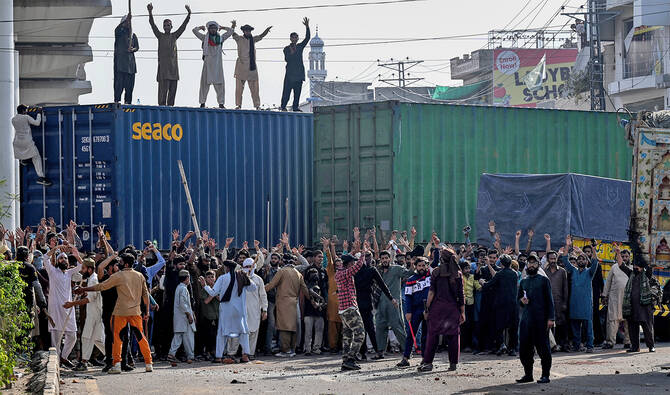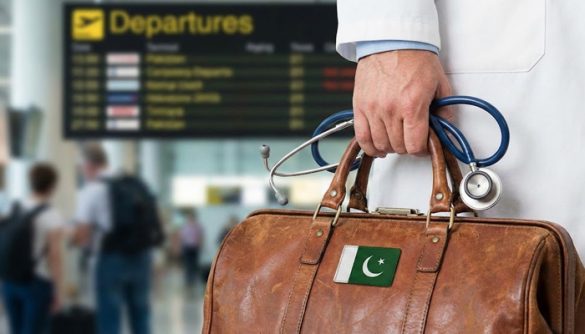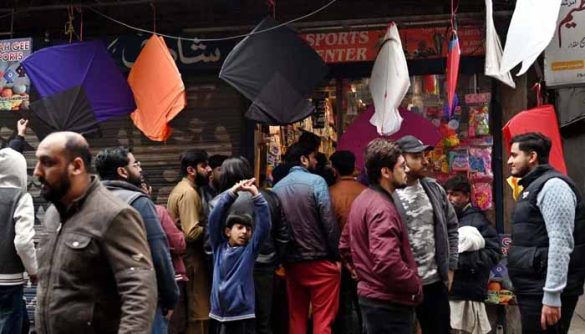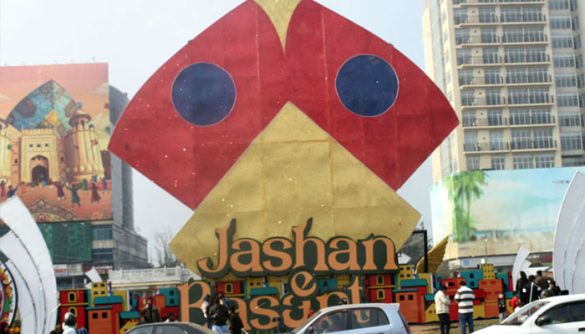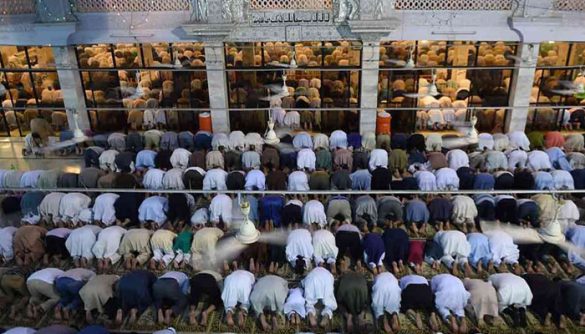Security Tightened as Protest March Announced
Authorities in Pakistan’s twin cities — Islamabad and Rawalpindi — have imposed sweeping security measures after a religious political party called for a protest march toward the federal capital.
Earlier, security was tightened ahead of the possible TLP march, with containers placed at Faizabad and checkpoints established around key routes. The government has sealed entry and exit routes, suspended mobile internet services, and enforced a ban on public gatherings in an attempt to maintain law and order.
The protest was announced earlier this week by a prominent religious organization demanding action on unspecified political and religious issues. Fearing unrest or violence, local administrations in both cities mobilized thousands of police personnel and placed shipping containers across major roads to block access to key areas.
Officials say the restrictions are temporary but necessary to “protect public safety.” However, commuters and residents are facing severe disruption to daily life, with traffic gridlock and limited access to essential services.
Major Roads Blocked and Transport Paralyzed
Traffic in and around Islamabad and Rawalpindi has come to a standstill. Containers have been placed at all major intersections, including Faizabad Interchange — a key route connecting the two cities. Roads linked to the busy Murree Road have also been sealed off.
Several main junctions such as Chandni Chowk, Sixth Road, Liaquat Bagh, and Committee Chowk are under tight police control. Heavy contingents of security personnel are patrolling the streets, while riot control vehicles remain on standby.
Public transport has been severely affected. The Metro Bus Service — a vital commuting link between Islamabad and Rawalpindi — has been suspended until further notice. Many residents are struggling to reach workplaces, hospitals, and schools. Those traveling for medical reasons report facing long detours and delays.
Shops, hotels, and commercial centers along Murree Road have been shuttered due to fears of potential clashes. Business owners say the closures are a precaution against property damage.
Section 144 Imposed and Schools Closed
In Rawalpindi, local authorities have invoked Section 144 of the Pakistan Penal Code, which prohibits gatherings of more than four people. Officials say the measure is meant to prevent unrest and ensure public safety.
The city administration warned that any violation of the law would result in “immediate legal action.” Police have been authorized to detain protesters who attempt to enter restricted zones or disrupt traffic.
The security situation has also led to the closure of schools and universities. Both public and private institutions in Rawalpindi and parts of Lahore have been ordered to suspend classes. Punjab University has postponed its scheduled LLB examinations, saying new dates will be announced later.
Parents and students have expressed concern about the indefinite suspension, as many were in the middle of exam sessions.
Mobile Internet Suspended Across Twin Cities
Pakistan’s Ministry of Interior has directed the Pakistan Telecommunication Authority (PTA) to suspend 3G and 4G mobile internet services in Islamabad and Rawalpindi from midnight “until further notice.”
Officials stated the move was made “due to security concerns and the potential misuse of social media during the protest.” Similar internet blackouts have been used in the past during large-scale demonstrations to curb the spread of misinformation and to prevent coordination among protesters.
Telecommunication companies have confirmed that mobile data services are currently offline in most parts of the capital region. Residents have reported difficulties using digital payment systems, navigation apps, and online communication platforms.
Residents Frustrated Amid Uncertainty
As the standoff continues, frustration among citizens is mounting. Many are calling on the government and religious leaders to engage in dialogue to avoid further disruption.
“We just want peace and normalcy,” said one resident of Rawalpindi. “These repeated shutdowns make life impossible — no transport, no internet, no work.”
Businesses, transport operators, and daily wage earners are expected to bear heavy financial losses if the closures persist. Analysts warn that prolonged unrest could further strain Pakistan’s already fragile economic situation, which has been marked by inflation exceeding 23 percent and slow recovery from last year’s political turmoil.
For now, Islamabad remains on alert, with police checkpoints across the city and limited movement allowed. Authorities have urged the public to avoid unnecessary travel until conditions stabilize.

